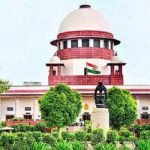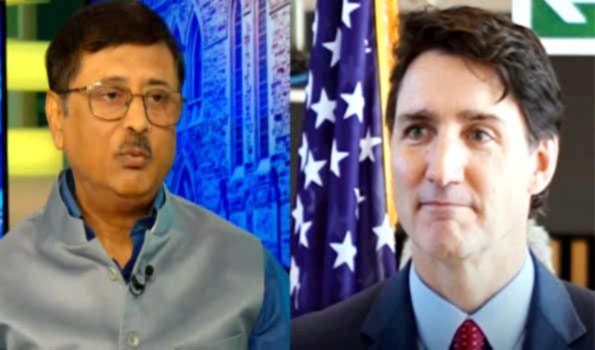Ottawa/New Delhi, Oct 20 (UNI) As he leaves for India, Indian High Commissioner Sanjay Kumar Verma has stated emphatically that Ottawa has not shared a shred of evidence on the allegations around the killing of Indo-Canadian Khalistani activist Hardeep Singh Nijjar and that PM Justin Trudeau has “made sure that the bilateral relationship with India goes spiralling down”.
In an interview to CTV News, the Indian High Commissioner also said that India wants the Canadian government of the day to understand New Delhi’s core concerns regarding the activities of the Khalistani separatists in Canada and act on the issue sincerely “rather than being bedfellows with those who are trying to challenge India’s sovereignty and territorial integrity”.
Asked about the allegations, he told the interviewer: “We needed to see some evidence, on the basis of which we can converse with our Canadian counterparts. Unfortunately, not a shred of evidence was shared with us. Any evidence shared has to be legally acceptable… Unfortunately we have not got anything from any Canadian official which can lead us to a better spot.”
Asked if he had anything to do with the murder of Nijjar, as alleged by the Canadian Foreign Minister Melanie Joly, he said:
“Nothing at all. No evidence was presented, it is politically motivated. And more or less if Mr Trudeau or his colleagues know about it, is it not a crime not to file a charge sheet, not to go through the judicial process?”
To a question on him being named a ‘person of interest’ in the probe into the killing of Nijjar, he said: “On what basis? If you are a defendant for example, which I am not, then you will be shared with the evidence, on the basis of which anything can take place, and that happens even when you have been caught for a petty crime.”
He said the most important issue from India’s point of view are the 26 extradition requests for Khalistani terrorists and extremists and many arrest requests put to Ottawa.
On the RCMP saying they have evidence, and they wanted to question him, he said: ”If I am going for an interrogation I need to know what I am being interrogated for, what are the evidence you have, so that I go prepared.”
He also dismissed Foreign Minister Joly claiming that Ottawa has “clear and concrete evidence” against him in the killing of Nijjar, saying “As far as I am concerned she is talking politically; as far as I am concerned, she has got nothing in her hand. “
The Indian High Commissioner completely refuted any connection with the Nijjar killing. ”I entirely refute any connection… Canada didn’t follow the practice. Didn’t share evidence, someone decided to stand in parliament (Trudeau) and talk about a thing for which he himself has said there is no hard evidence. And since then, he has made sure that the bilateral relationship with India goes spiralling down.”
The Indian HC said the “The Canadian agencies talking to us have not given us a shred of evidence, including on the October 12 meeting in Singapore for us to act upon.”
“Gone are the days when the so called developed countries would ask a developing country – ‘You must do this’, and they will run after them and do it.”
“We are a rule of law country, as Canada prides itself on being a rule of law country; so won’t you give me evidence which are suitable for my own legal process?”
On the larger bilateral relationship, he said despite the issues the relationship will endure.
“It is a large relationship, Canada had been a friend of India, Canada will remain a friend of India, there had been issues earlier (Khalistani issues)….We only want the Canadian regime of the day, the government of the day to understand my core concerns and act on that sincerely, rather than being bedfellows with those who are trying to challenge Indian sovereignty and territorial integrity. And mind you, the largest Sikh population in the world is in India. They undergo elections, at least every five years.
“Their election voting percentage is much higher than Canadian elections; the short point is – what happens to India will be determined by Indians. These Khalistani terrorists and extremists who are based out of Canada are not Indians. They are Canadian citizens, and no government should encourage their citizens to attack the sovereignty and territorial integrity of another country.”
He said the current bitterness will not impact the large trade relationship, or the people to people ties and science and tech relationship; “that has nothing to do with it”.











